 On the third day there was a wedding in Cana of Galilee, and the mother of Jesus was there. Jesus and his disciples had also been invited to the wedding. – John 2:1-2
On the third day there was a wedding in Cana of Galilee, and the mother of Jesus was there. Jesus and his disciples had also been invited to the wedding. – John 2:1-2
I know that the natural inclination of preachers during the season of ordinary Sundays after Epiphany is to focus on the gospel stories of “manifestation” and we certainly have one this week, the miracle of water-into-wine at the wedding in Cana of Galilee. The story is ripe with focus possibilities: the miracle itself, the presence of the Holy Spirit as the activating force of Jesus’ power (suggested strongly this year by the lectionary pairing of this gospel tale with Paul’s listing of spiritual gifts in 1 Corinthians 12), the always popular look at the relationship between Mary and her son, Jesus’ attitude toward his public ministry at this time.
What is seldom preached on this Sunday is the context of the story: a wedding! So I think I might go there this week if I were preaching. The lesson from the Hebrew Scriptures positively invites us to do so; marriage is Isaiah’s metaphor (as it is other prophets’) for the relationship between God and Israel:
For as a young man marries a young woman,
so shall your builder marry you,
and as the bridegroom rejoices over the bride,
so shall your God rejoice over you.[1]
I’ve been thinking a good deal recently about the nature of the marital estate. I recently had major orthopedic surgery (a total knee replacement) and find myself absolutely unable to attend to many of the everyday activities of life, some of them quite mundane, some quite intimate and personal. I am dependent upon my spouse to whom I have been married now for nearly 40 years. As she attended to one of my needs the other day, I quipped, “Ah yes, I remember well that part of the service where we promised to do this for each other” (which, of course, we hadn’t). We make formal promises in weddings to love and honor, to cherish and comfort, to faithfully keep one another “in sickness and health,”[2] but we don’t get into the nitty-gritty details. Perhaps we’ve been counseled in advance of the wedding as to what these vows mean and what that nitty grit might be, but no pre-marital instruction can cover everything.
My father-in-law probably didn’t realize in 1947 that those promises would commit him 50 years later to caring for an invalid wife suffering from Alzheimer’s disease for the last eight years of their marriage, feeding her, bathing her, wiping her bottom, and all while she tried to fight him off because she didn’t know him. Those vows long before the onset of my mother-in-law’s disease had become water under the bridge, replaced by the fine, strong wine of human love and commitment. And though she hasn’t (I hope) had quite the same level of difficulty to handle, my in-law’s daughter follows in her father’s footsteps taking care of her temporarily invalided husband.
So . . . if I were preaching this week, I’d consider that context, a wedding. Weddings become marriages, brides become wives, grooms become husbands; those are transmutations, transformations, and differences as profound as water become wine. That alchemy of marriage manifests the Lord in our midst everyday.
====================
Notes:
Click on footnote numbers to link back to associated text.
[1] Isaiah 62:5
[2] The Celebration and Blessing of a Marriage, The Book of Common Prayer 1979, page 424

 Again this week as last, our first reading today is from the First Book of Kings and like last week’s, it is a prayer spoken by King Solomon. Last week, it was a private prayer spoken in a dream late at night. Today, it is a public prayer. As long as it was, this reading is just a small part of the dedicatory prayer that Solomon offered when the Temple was finished and consecrated. In it, Solomon asks an important question, “[W]ill God indeed dwell on the earth?”
Again this week as last, our first reading today is from the First Book of Kings and like last week’s, it is a prayer spoken by King Solomon. Last week, it was a private prayer spoken in a dream late at night. Today, it is a public prayer. As long as it was, this reading is just a small part of the dedicatory prayer that Solomon offered when the Temple was finished and consecrated. In it, Solomon asks an important question, “[W]ill God indeed dwell on the earth?”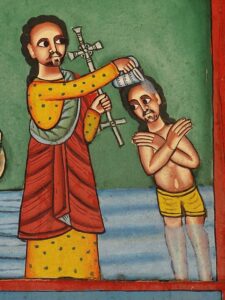 There’s a story about a pastor giving a children’s sermon. He decides to use a story about forest animals as his starting point, so he gathers the kids around him and begins by asking them a question. He says, “I’m going to describe someone to you and I want you to tell me who it is. This person prepares for winter by gathering nuts and hiding them in a safe place, like inside a hollow tree. Who might that be?” The kids all have a puzzled look on their faces and no one answers. So, the preacher continues, “Well, this person is kind of short. He has whiskers and a bushy tail, and he scampers along branches jumping from tree to tree.” More puzzled looks until, finally, Johnnie raises his hand. The preacher breathes a sigh of relief, and calls on Johnnie, who says, “I know the answer is supposed to be Jesus, but that sure sounds an awful lot like a squirrel to me.”
There’s a story about a pastor giving a children’s sermon. He decides to use a story about forest animals as his starting point, so he gathers the kids around him and begins by asking them a question. He says, “I’m going to describe someone to you and I want you to tell me who it is. This person prepares for winter by gathering nuts and hiding them in a safe place, like inside a hollow tree. Who might that be?” The kids all have a puzzled look on their faces and no one answers. So, the preacher continues, “Well, this person is kind of short. He has whiskers and a bushy tail, and he scampers along branches jumping from tree to tree.” More puzzled looks until, finally, Johnnie raises his hand. The preacher breathes a sigh of relief, and calls on Johnnie, who says, “I know the answer is supposed to be Jesus, but that sure sounds an awful lot like a squirrel to me.”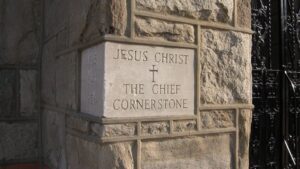 This is the second of three Sundays during which our lessons from the Gospel according to Matthew tell the story of an encounter between Jesus and the temple authorities. Jesus has come into Jerusalem, entered the Temple and had a somewhat violent confrontation with “the money changers and … those who sold doves,”
This is the second of three Sundays during which our lessons from the Gospel according to Matthew tell the story of an encounter between Jesus and the temple authorities. Jesus has come into Jerusalem, entered the Temple and had a somewhat violent confrontation with “the money changers and … those who sold doves,”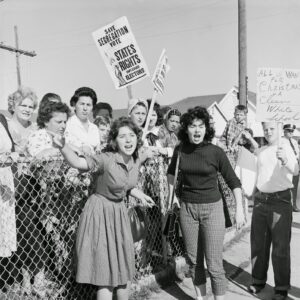 Heavenly Father,
Heavenly Father, This is an old and familiar story, a comfortable story if you will … the parable of the sower.
This is an old and familiar story, a comfortable story if you will … the parable of the sower.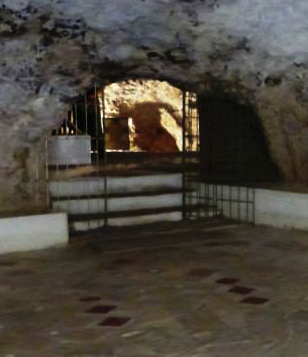 A wandering Aramean was my ancestor; he went down into Egypt and lived there as an alien, few in number, and there he became a great nation, mighty and populous. – Deuteronomy 26:5
A wandering Aramean was my ancestor; he went down into Egypt and lived there as an alien, few in number, and there he became a great nation, mighty and populous. – Deuteronomy 26:5 On the third day there was a wedding in Cana of Galilee, and the mother of Jesus was there. Jesus and his disciples had also been invited to the wedding. – John 2:1-2
On the third day there was a wedding in Cana of Galilee, and the mother of Jesus was there. Jesus and his disciples had also been invited to the wedding. – John 2:1-2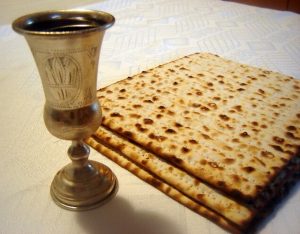 At the end of our gospel lesson this morning, Jesus said to the crowd, “It is my Father who gives you the true bread from heaven. For the bread of God is that which comes down from heaven and gives life to the world.” They said to him, “Sir, give us this bread always.” Jesus answered, “I am the bread of life. Whoever comes to me will never be hungry, and whoever believes in me will never be thirsty.”
At the end of our gospel lesson this morning, Jesus said to the crowd, “It is my Father who gives you the true bread from heaven. For the bread of God is that which comes down from heaven and gives life to the world.” They said to him, “Sir, give us this bread always.” Jesus answered, “I am the bread of life. Whoever comes to me will never be hungry, and whoever believes in me will never be thirsty.” In 2014, Evie and I were privileged to join a group of other pilgrims from Ohio and Michigan and spend not quite three weeks in Palestine and Israel visiting many of the sites we hear about in the Bible, especially the Christian holy places of the Gospel stories. One of those was a hilly place overlooking the Sea of Galilee called Tabgha. Until 1948, when the Israelis uprooted its residents, a village had been there for centuries; now it is simply an agricultural area and a place of religious pilgrimage.
In 2014, Evie and I were privileged to join a group of other pilgrims from Ohio and Michigan and spend not quite three weeks in Palestine and Israel visiting many of the sites we hear about in the Bible, especially the Christian holy places of the Gospel stories. One of those was a hilly place overlooking the Sea of Galilee called Tabgha. Until 1948, when the Israelis uprooted its residents, a village had been there for centuries; now it is simply an agricultural area and a place of religious pilgrimage.

